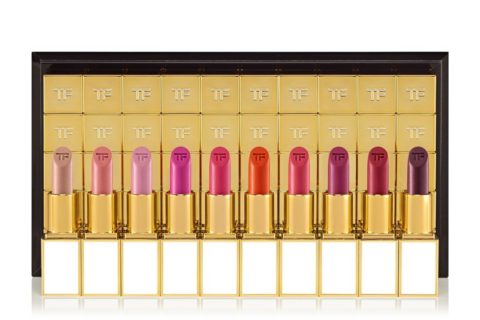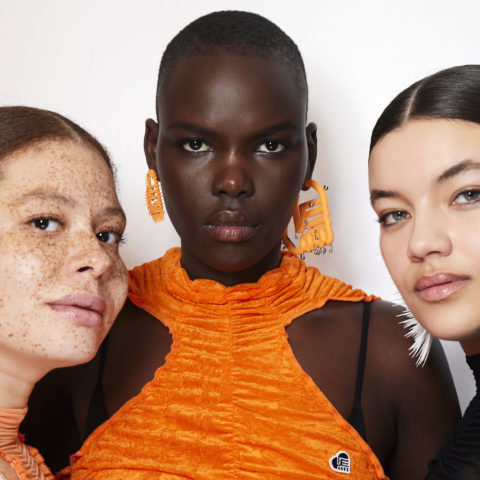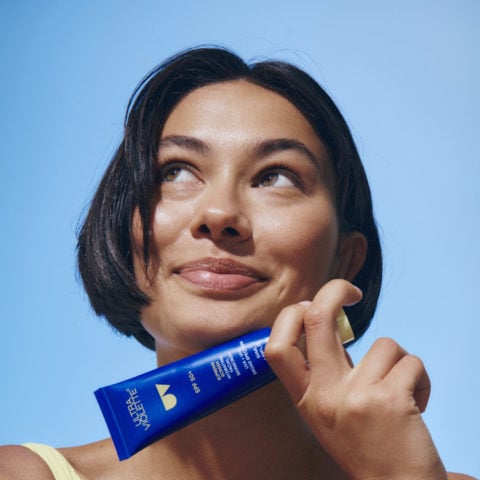On Tom Ford’s “Girls” Lipsticks and the Myth of Personalized Beauty Products
This Friday, Tom Ford will release 50 Boys and 50 Girls clutch-sized lipsticks, named after 100 of his closest friends, or so we assume. Shades range from “Grace” (Coddington) to “Lena” (Dunham) to “Warren” (Buffett — let me have this), and join the ranks of Zayn and Louis and Leonardo.
So finally, there’s a lipstick for everybody. Or so we tell ourselves.
We love to believe something exists just for us — that we’ve been seen by somebody in power and awarded tangible recognition for our existence. So whether we’re combing through personalized keychains or a new lipstick collection, we’re seeking out proof that our specialness can materialize into something concrete. Which means that if we find it, we get to revel in a sense of false ownership while we assign meaning to a thing. (Case in point: Tom Ford’s “Anne” is clearly a testament to my love of wearing bright lipstick.)
And if we don’t find something for ourselves, we look to find meaning through the best parts of somebody else’s identity. We pick up Drake-inspired lip shades, or line up for Nicki Minaj and Taraji P. Henson’s collaborations with M.A.C. And we tell ourselves that we’re channeling the people we look up to or chase after, and use lipsticks, blushes, and glosses made in their image to evoke the ideal we’ve assigned to them. Even though as grown adults, we understand how branding and marketing works. We know that Tom Ford can’t include every name on the planet and that we’re still being ourselves, just wearing Taraji P. Henson lipstick. But that’s where our imagination comes into play. Because even an item that’s personalized for somebody else will let us escape who we are for a second.
Regardless of whether you’re buying something with your own name on it or somebody else’s, there’s a suspension of belief that’s necessary to participate in it. You can channel the best traits of who it was actually named after, or temporarily assign new meaning to your own name. You cultivate an identity entirely on who someone else has decided you are (a red lipstick, a purple lipstick, a blue lipstick), but inject enough of yourself to make it feel like an extension, and not just a mask. Which is important: makeup can serve as armour you may need to confront a person, to attend a party, to write those thousand-something words. So why shouldn’t we assign meaning to it? Why can’t the names attached be the cosmetic equivalent of lighting a prayer candle to call on a patron saint?
The thing is, names mean and represent what we need them to. And while Tom Ford likely didn’t go into creating his new colours for the sake of helping to armour us, he succeeded in creating a cast of characters whose personas we get to adopt whenever we need to. Because while being seen in a tangible way is rewarding (here’s to the “Anne” lipstick!), it’s even more so when you decide who you’re going to be for a while.








